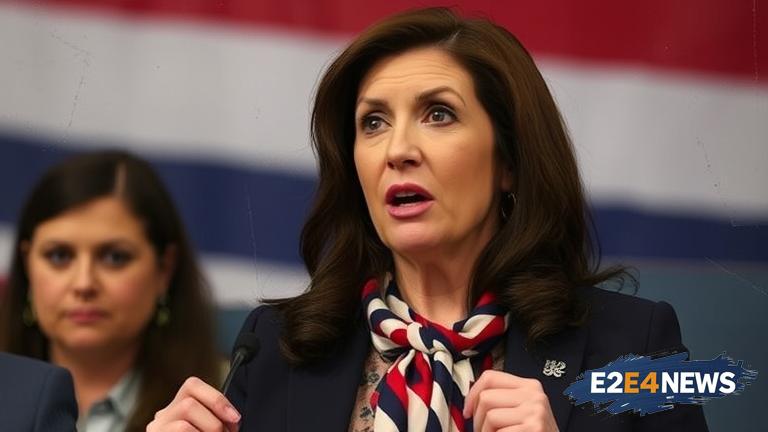The Republican party is currently embroiled in a heated debate over the influence of Laura Loomer, a figure known for her far-right views and social media presence. Loomer, who has been banned from several social media platforms, has been gaining traction among some Republican circles, sparking concerns about the party’s direction. Some Republicans have expressed admiration for Loomer’s unapologetic style and her ability to rally support among conservative voters. However, others have criticized her for promoting conspiracy theories and hate speech. The debate over Loomer’s influence has highlighted the deep divisions within the Republican party, with some members calling for a more inclusive and moderate approach, while others are embracing a more hardline stance. Loomer’s rise to prominence has also raised questions about the role of social media in shaping political discourse and the potential consequences of amplifying extremist views. Despite the controversy surrounding her, Loomer remains a popular figure among some conservative voters, who see her as a champion of free speech and a fierce critic of liberal elites. However, her influence has also been criticized by some Republicans, who argue that her views are damaging to the party’s reputation and its ability to attract moderate voters. The debate over Loomer’s influence is likely to continue, with some Republicans calling for a more nuanced approach to addressing the concerns of conservative voters, while others are likely to continue embracing her unapologetic style. As the Republican party navigates this internal debate, it remains to be seen how Loomer’s influence will shape the party’s direction and its ability to appeal to a broader range of voters. The controversy surrounding Loomer has also sparked a wider conversation about the role of social media in politics and the potential consequences of amplifying extremist views. Some experts have warned that the proliferation of hate speech and conspiracy theories on social media platforms can have serious consequences, including the erosion of trust in institutions and the normalization of violent rhetoric. Others have argued that social media companies have a responsibility to regulate extremist content and to promote more inclusive and respectful discourse. The debate over Loomer’s influence has also highlighted the challenges facing the Republican party as it seeks to appeal to a broader range of voters. Some Republicans have argued that the party needs to move beyond its traditional base and to embrace a more inclusive and moderate approach, while others are calling for a more hardline stance on issues like immigration and national security. As the party navigates this internal debate, it remains to be seen how Loomer’s influence will shape the party’s direction and its ability to appeal to a broader range of voters. The controversy surrounding Loomer has also sparked a wider conversation about the role of women in politics and the potential consequences of amplifying female voices. Some experts have argued that women are underrepresented in politics and that their voices are often marginalized or ignored. Others have argued that women like Loomer are helping to challenge traditional gender norms and to promote a more diverse range of perspectives. The debate over Loomer’s influence is likely to continue, with some Republicans calling for a more nuanced approach to addressing the concerns of conservative voters, while others are likely to continue embracing her unapologetic style. As the Republican party navigates this internal debate, it remains to be seen how Loomer’s influence will shape the party’s direction and its ability to appeal to a broader range of voters. The controversy surrounding Loomer has also highlighted the challenges facing social media companies as they seek to regulate extremist content and to promote more inclusive and respectful discourse. Some experts have warned that the proliferation of hate speech and conspiracy theories on social media platforms can have serious consequences, including the erosion of trust in institutions and the normalization of violent rhetoric. Others have argued that social media companies have a responsibility to regulate extremist content and to promote more inclusive and respectful discourse. The debate over Loomer’s influence is likely to continue, with some Republicans calling for a more nuanced approach to addressing the concerns of conservative voters, while others are likely to continue embracing her unapologetic style. As the Republican party navigates this internal debate, it remains to be seen how Loomer’s influence will shape the party’s direction and its ability to appeal to a broader range of voters.





